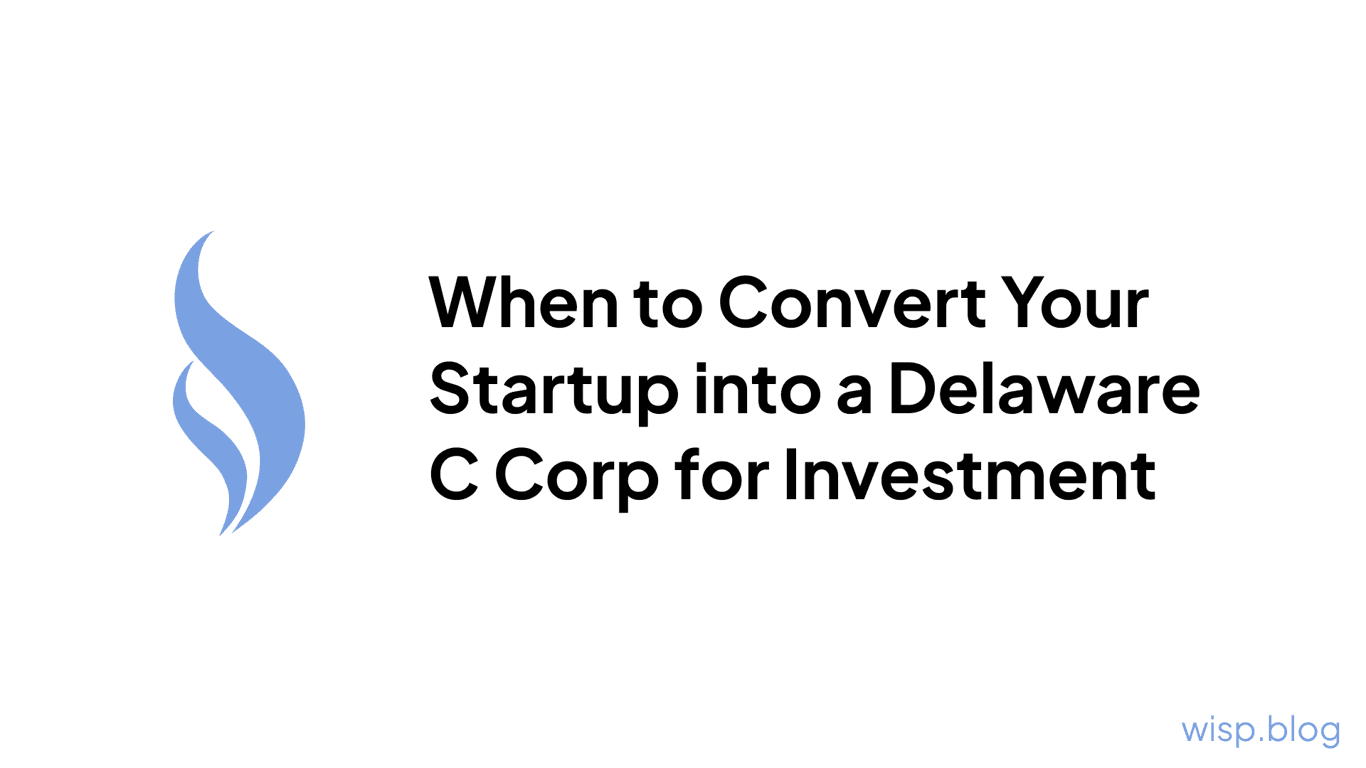
You've been pouring your heart and soul into building your startup. You've validated the idea, assembled a rockstar team, and started generating some initial traction. It's time to take things to the next level by applying to a top startup accelerator like Y Combinator or Hustle Fund. But then you discover a potential roadblock - your company is currently structured as an LLC, not a Delaware C Corporation. You start panicking, wondering if this could disqualify you from getting into these elite programs. The last thing you want is a technicality like that to derail your dreams after all your hard work.
While you've been hyperfocused on product development and growth, you haven't paid much attention to the legal structure and corporate governance side of things. An LLC just seemed like the easiest, most flexible setup when you were first getting started. But now you're realizing that decision could be causing unnecessary friction as you attempt to take your startup to the big leagues.
You've heard Delaware C Corps are the "standard" for venture-backed startups. But does that really matter at this stage? Or are investors and accelerators open to other structures like LLCs? You don't want to waste time and money restructuring your business if it's not absolutely required. But you also don't want to risk getting rejected for not checking that box. The uncertainty is stressing you out and distracting you from making progress on your actual product.
Here's the good news - while Y Combinator and most top-tier investors do ultimately want and expect you to be a Delaware C Corporation, it's not an absolute requirement for your initial accelerator application and pitch. They understand many promising early-stage startups are still structured as LLCs, sole props, or other entity types while finding their product-market fit.
The accelerators' main priority at the application stage is evaluating the strength of your idea, your entrepreneurial hustle, and your overall team's potential. As long as you can demonstrate traction and a scalable business model, they don't obsess over your corporate structure right away. Their mentality is: let's first make sure you have a company worth investing in. If so, we can guide you through the proper incorporation process before any funding is issued.
What's more, Y Combinator's investment in your startup does require you to restructure as a Delaware C Corp. But if you get accepted, they will provide resources, connections, and step-by-step instructions for handling the incorporation correctly and compliantly.
1. Don't stress about restructuring just yet
Apply with your current LLC or other structure and focus your pitch on why your startup is a game-changer. If accepted by an accelerator like YC, incorporation will be one of the first key steps before receiving funding. They have a vested interest in helping you get it done properly.
When applying, be upfront that you're currently an LLC (or sole prop, etc.), but have already researched the benefits of being a C Corp for future fundraising rounds. Explain your current structure made sense for the early stages to maintain flexibility and avoid complexities. But now that you're ready to accelerate growth, you're prepared to bring on professional legal/accounting support to restructure as a venture-fundable Delaware C Corp.
2. Have an incorporation plan
If asked about incorporation plans, be able to articulate the key benefits of being a C Corp for venture financing. Such as the ability to issue different share classes like preferred stock for investors. Having a formal board of directors with appointed investor representatives for governance. And the legal advantages of Delaware's corporate case law providing clarity around shareholder rights, dilution, and other matters.
Demonstrate your self-awareness that LLCs and sole props have limitations for venture deals. But don't overcomplicate your application by trying to restructure prematurely before getting accepted.
3. Take notes on restructuring
If you make it into YC, pay close attention during the incorporation process they'll guide you through. This is a masterclass in how to restructure and capitalize a high-growth startup correctly. Take meticulous notes, ask questions, and treat it as an educational opportunity.
YC has experienced lawyers and accountants they'll introduce you to who can handle much of the heavy lifting. But be sure to understand all the legal docs, share structures, corporate bylaws, and other components you're signing. This will make you a smarter founder moving forward.
4. Leverage services
Use a service like Clerky, Stripe Atlas, or the YC-approved vendors to seamlessly incorporate in Delaware. Don't try to file the documents and set it all up from scratch yourself. Their platforms and processes are designed to make it turnkey for startups.
Setting up a Delaware C Corporation is not something you should attempt as a DIY project. Incorporating a C Corp is a complex legal process that requires guidance from experienced corporate lawyers and tax accountants. Trying to navigate the filing requirements, tax implications, corporate bylaws, and other technicalities on your own would be extremely risky.
5. Learn more about venture deals
Read books like "Venture Deals" by Brad Feld and Jason Mendelson to educate yourself on all the venture financing terms, structures, and best practices. Study up on topics like convertible notes, SAFEs, equity splits, liquidation preferences, and more. The more you demonstrate startup legal/finance savviness, the more credible you'll be to investors.
The bottom line is: your current structure as an LLC or other entity won't automatically disqualify you from top accelerators in your application process. They invest in the team and business model first, then restructure as needed with professional support. So don't let that stop you from shooting your shot! But also be prepared to level-up your corporate governance for venture scale if accepted.


